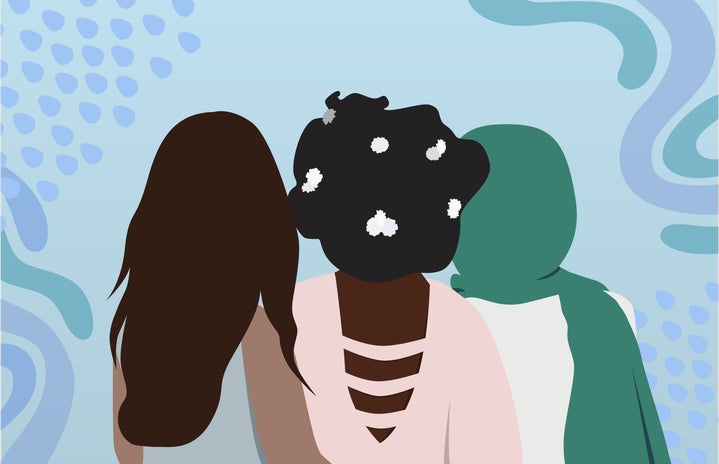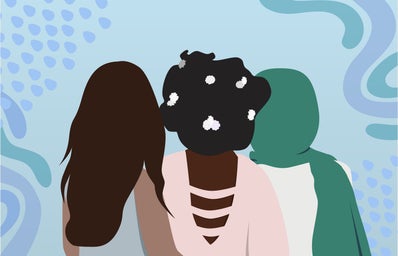This semester, I am enrolled in Women’s Mental Health, an upper-division psychology course at CU. As a psychology major, I thought I knew quite a bit about mental illness, but this class has made me realize how gender, race, and several other factors impact an individual’s mental health. Women’s Mental Health has really opened my eyes to how complex and nuanced gender-based psychology is, so I sat down with my professor, Dr. Tina Pittman Wagers, to chat about gender, mental health, and how we can support women during Women’s History Month and beyond.
Dr. Tina Pittman Wagers is a teaching professor of distinction in the psychology and neuroscience program at CU Boulder, and she has been teaching Women’s Mental Health for about 10 years. Her favorite part of teaching this course does not have to do with any specific content area; she enjoys getting to be a liaison between students and the science of mental health. She expressed that enlightening students about things they never knew before is interesting and exciting. However, the course does cover some heavy and upsetting topics.
“Science has disregarded women’s bodies for a long time,” Dr. Pittman Wagers stated. In fact, it was not until 2014 that the National Institutes of Health required research studies to balance sex in cell and animal studies. This means that up until six years ago–well within all of our lifetimes–research studies were not required to include women. When research studies meant for women’s health only included male bodies, women are the ones who bear the negative consequences. This matters because women experience physical mental illness in very different ways than men do.
Men typically have higher rates of substance use disorders, while women have higher rates of stress-related disorders like anxiety or depression. According to Dr. Pittman Wagers, women struggle with many sources of stress that are part of the fabric of our culture. Think about all of the additional issues that women have to face–being paid less at work, sexual harassment, and systematic inequality in almost all career fields, just to name a few. This is not to say that men don’t face these things, but women tend to face them at much higher rates, and that takes a toll on our mental health.
One of the things Dr. Pittman Wagers highlights in her class is intersectionality. She believes that intersectionality is a key part of how we need to understand mental health, as only looking at gender will not provide enough information about things that women of color, LGBTQ+ women, or disabled women go through. A Black transgender woman will experience mental illness very differently than a white cisgender woman, for example, and that needs to be acknowledged. We need to look at mental health from all lenses of identity.
“Intersectionality goes a long way to explain the cumulative impact of oppressed identities.”
Dr. Tina Pittman Wagers
Living in Boulder has its own unique challenges on mental health, especially for women. Dr. Pittman Wagers described the “hyper-competitive image-conscious social context” in the environment of CU, and how that can be damaging to students’ mental health. She had a few great suggestions for how women (and anyone else) can take care of their mental health at CU.
First, Dr. Pittman Wagers mentioned that when we are babies and we don’t get enough food or sleep, it’s understandable that we are irritable. So why don’t we extend that same understanding to our adult selves? When she said this, it really struck a chord with me. I completely agree with Dr. Pittman Wagers that one great way to take care of our mental health is to take care of our physical health. Getting enough sleep, water, food, and exercise can really change your mindset for the better.
She also encourages students to find their group of “cheerleaders,” friends who support and love them no matter what. Dr. Pittman Wagers said that since CU is such a large school, there are plenty of places to find your group of people. She added that it’s important to give yourself the same compassion that you would give your friends.
Finally, I asked Dr. Pittman Wagers if she had any recommendations for people wanting to learn more about women’s mental health. Below, I listed the six books required for the Women’s Mental Health course, as well as a few other books, podcasts, and articles that Dr. Pittman Wagers suggested.
“The Bell Jar” by Sylvia Plath
“The Bluest Eye” by Toni Morrison
“Doing Harm” by Maya Dusenbery
“Willow Weep for Me” by Meri Nana-Ama Danquah
“The Warmth of Other Suns” by Isabel Wilkerson
“Ologies” podcast by Alie Ward
Washington Post: Carolyn Hax Advice Column
A huge thank you to Dr. Pittman Wagers for letting me interview her and teaching me so much about women’s mental health this semester! I hope this article encouraged you to learn more about intersectionality in psychology, and also gave you some exciting new book and podcast ideas.






